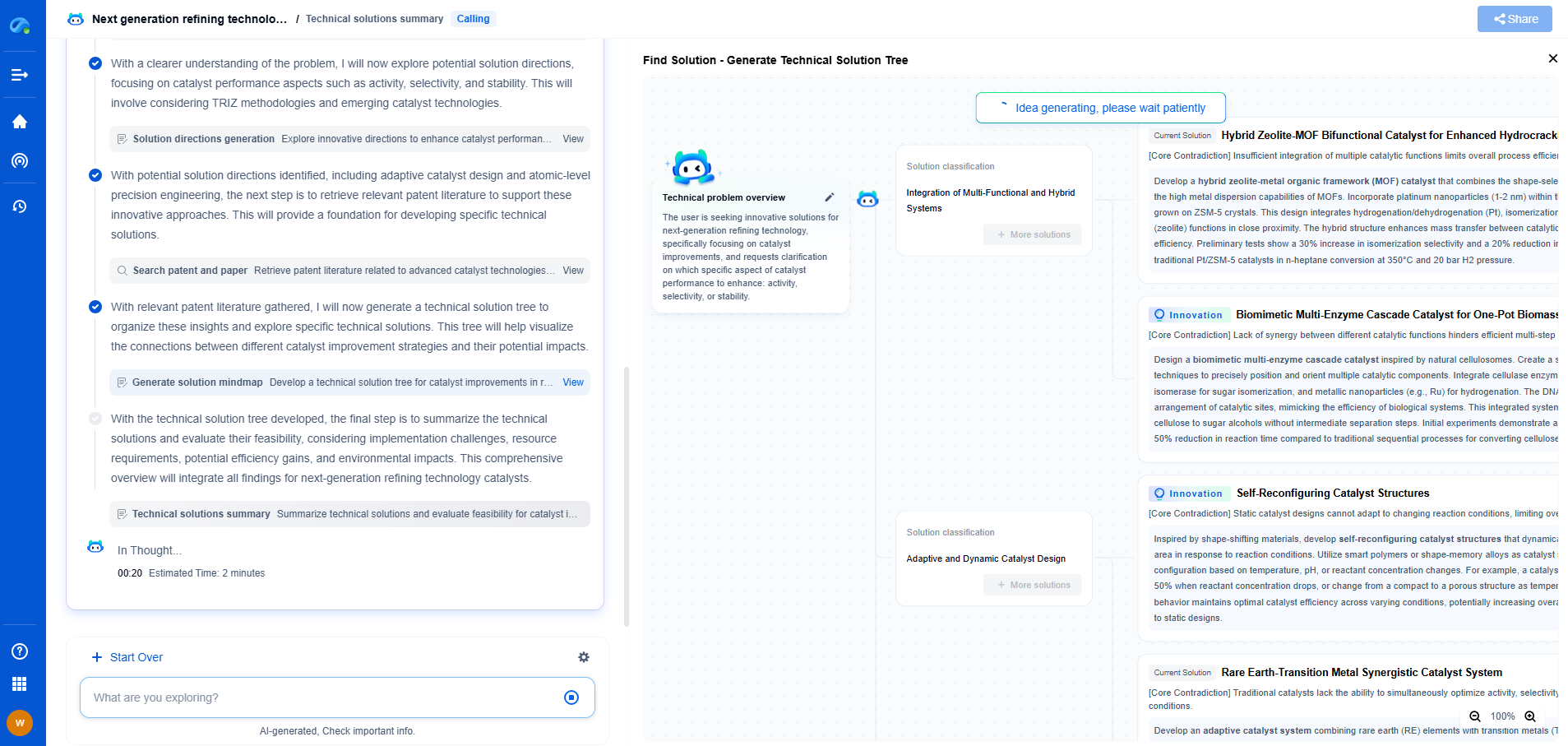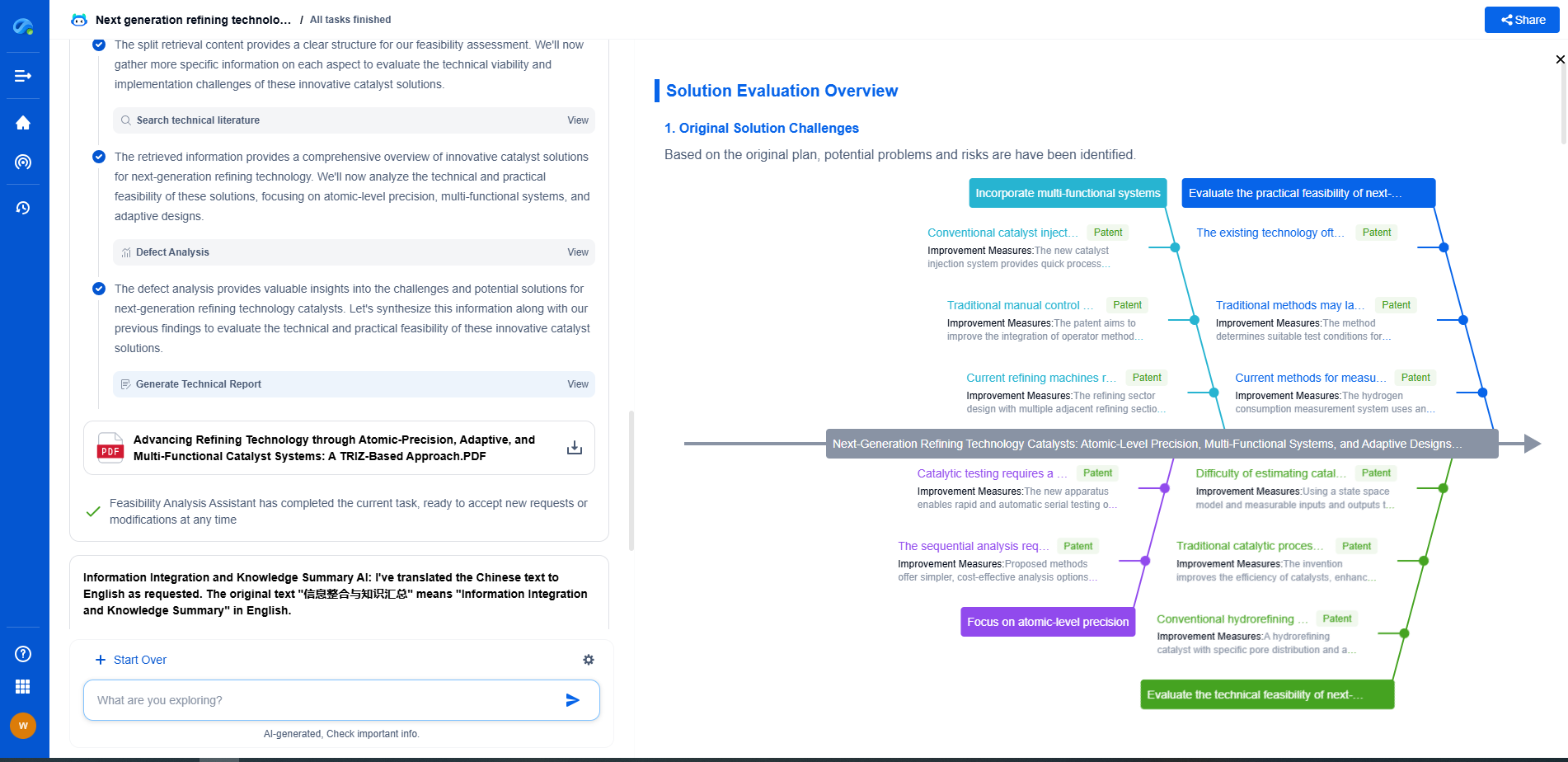What Is SCADA and How Is It Used in Industrial Control?
JUL 2, 2025 |
Supervisory Control and Data Acquisition, commonly known as SCADA, is a crucial system used in industrial processes to monitor and control infrastructure and facilities. These systems are integral in various sectors, including manufacturing, energy, water treatment, and transportation. SCADA enables organizations to gather real-time data, process it for decision-making, and control processes from remote locations. Understanding its functionality and applications can shed light on its significance in modern industrial control systems.
Components of SCADA Systems
SCADA systems consist of several components that work together to provide seamless control and data acquisition. The primary components include:
1. **Human-Machine Interface (HMI):** This is the user interface that connects operators to the SCADA system. It displays data collected from various sensors and inputs, allowing operators to monitor and control processes.
2. **Remote Terminal Units (RTUs):** These are field devices that interface with sensors and actuators in the physical equipment. RTUs convert sensor signals into digital data and send it to the central SCADA system.
3. **Programmable Logic Controllers (PLCs):** PLCs are used to automate control processes. They execute control algorithms and can be programmed to respond to specific conditions in the industrial process.
4. **Communication Infrastructure:** This includes the networks and protocols used to transmit data between RTUs, PLCs, and the central SCADA system. Reliable communication is essential for real-time monitoring and control.
5. **Data Acquisition System:** This component collects and processes information from sensors and inputs from the field. The data is then used for analysis and decision-making.
Applications of SCADA in Industrial Control
SCADA systems have a wide range of applications across various industries, offering numerous benefits:
1. **Manufacturing:** In manufacturing, SCADA systems oversee production processes, ensuring that machinery operates efficiently. They help in monitoring equipment conditions and managing maintenance schedules, reducing downtime and operational costs.
2. **Energy Management:** SCADA is extensively used in the energy sector to control power generation, transmission, and distribution. It allows for real-time monitoring of grid performance and aids in load balancing and fault detection.
3. **Water and Wastewater Management:** SCADA systems help manage water treatment plants and distribution systems, ensuring safe and efficient water supply. They control pumps, valves, and chemical treatments, maintaining water quality standards.
4. **Transportation Systems:** In transportation, SCADA is used to manage traffic signals, railway operations, and airport systems. It enhances safety and efficiency by monitoring and controlling various transportation infrastructures.
5. **Oil and Gas Industry:** SCADA systems are employed to manage pipeline operations, refineries, and storage facilities. They ensure safe and efficient operations by monitoring pressure, flow rates, and leak detection.
Benefits of Using SCADA Systems
The implementation of SCADA systems offers multiple advantages for industrial control:
1. **Improved Efficiency:** By providing real-time data and control, SCADA systems enhance the efficiency of industrial processes. Operators can make informed decisions, reducing waste and optimizing resource use.
2. **Enhanced Safety:** SCADA systems improve safety by monitoring critical parameters and enabling quick responses to emergencies. Automated alerts and controls minimize the risk of accidents and equipment failures.
3. **Reduced Costs:** The use of SCADA can significantly cut down operational costs by reducing manual labor, lowering energy consumption, and minimizing downtime through predictive maintenance.
4. **Scalability and Flexibility:** SCADA systems are highly scalable and can be customized to fit various industrial needs. They allow easy integration with existing systems and can adapt to future expansions.
Challenges and Considerations
While SCADA systems offer numerous benefits, they also present certain challenges and considerations:
1. **Cybersecurity Risks:** As SCADA systems are increasingly connected to networks, they become vulnerable to cyberattacks. Ensuring robust cybersecurity measures is essential to protect critical infrastructure.
2. **Complexity and Cost:** Implementing and maintaining SCADA systems can be complex and costly. Organizations need to consider the investment in hardware, software, and personnel training.
3. **Data Management:** With the vast amount of data generated, organizations must have efficient data management strategies in place to derive actionable insights.
Conclusion
SCADA systems play a pivotal role in modern industrial control, enabling efficient, safe, and cost-effective management of processes across various sectors. Despite the challenges, their ability to provide real-time monitoring, control, and data analysis makes them indispensable in today's industrial landscape. Embracing advancements in SCADA technology and addressing associated risks will continue to drive operational excellence in the industry.
Ready to Reinvent How You Work on Control Systems?
Designing, analyzing, and optimizing control systems involves complex decision-making, from selecting the right sensor configurations to ensuring robust fault tolerance and interoperability. If you’re spending countless hours digging through documentation, standards, patents, or simulation results — it's time for a smarter way to work.
Patsnap Eureka is your intelligent AI Agent, purpose-built for R&D and IP professionals in high-tech industries. Whether you're developing next-gen motion controllers, debugging signal integrity issues, or navigating complex regulatory and patent landscapes in industrial automation, Eureka helps you cut through technical noise and surface the insights that matter—faster.
👉 Experience Patsnap Eureka today — Power up your Control Systems innovation with AI intelligence built for engineers and IP minds.
- R&D
- Intellectual Property
- Life Sciences
- Materials
- Tech Scout
- Unparalleled Data Quality
- Higher Quality Content
- 60% Fewer Hallucinations
Browse by: Latest US Patents, China's latest patents, Technical Efficacy Thesaurus, Application Domain, Technology Topic, Popular Technical Reports.
© 2025 PatSnap. All rights reserved.Legal|Privacy policy|Modern Slavery Act Transparency Statement|Sitemap|About US| Contact US: help@patsnap.com

